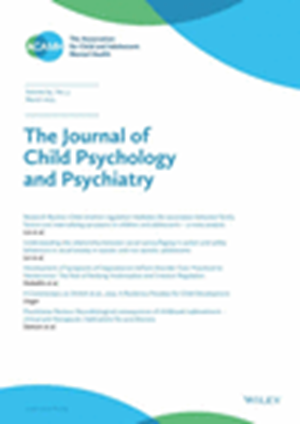Research Review: Are sampling biases masking long-term effects of hormonal contraceptive use in adolescence on risk for depression?
IF 7
1区 医学
Q1 PSYCHIATRY
引用次数: 0
Abstract
BACKGROUND Growing evidence suggests that the use of hormonal contraceptives (HCs) during adolescence may be linked to an increased risk for depression. This review examines major inconsistencies that have been reported regarding this relationship, and in particular, how the common practice of combining 'never users' and 'former users' of HCs in analyses obscures patterns that are detectable when these groups are analyzed separately. METHODS A review was conducted of research examining the relationship between HC use and depression to determine what data-analytic choices were commonly made by individual researchers. Specifically, we assessed whether the past history of HC use had been accounted for in each reported analysis. RESULTS The majority of papers published between 2013 and 2022 did not account for the former use of HCs. These papers reported mixed findings regarding the relationship between HC use and depression. In contrast, the subset of papers that did account for former use of HCs, or otherwise explicitly addressed common biases affecting the interpretation of observational data, revealed a more consistent relationship between HC use and depression, particularly for those who began using HCs during adolescence. CONCLUSION We conclude that there is consistent evidence of a relationship between adolescent HC use and long-term risk for depression and offer several recommendations to help ensure that future work in this area will yield consistent, interpretable findings. Although this paper focuses primarily on HCs and depression, many of the analytical approaches and recommendations outlined within it are also relevant to research on the side effects of other drugs and medications.研究评论:抽样偏差是否掩盖了青春期使用激素避孕药对抑郁症风险的长期影响?
背景:越来越多的证据表明,在青春期使用激素避孕药(hc)可能会增加患抑郁症的风险。本文审查了已报道的关于这一关系的主要不一致之处,特别是在分析中将hc的“从未使用者”和“以前使用者”结合在一起的常见做法如何模糊了在单独分析这些群体时可检测到的模式。方法对研究HC使用与抑郁之间关系的研究进行回顾,以确定个体研究人员通常做出的数据分析选择。具体来说,我们评估了在每个报告的分析中是否考虑了过去使用HC的历史。结果2013 - 2022年期间发表的大多数论文没有说明以前使用hc的情况。这些论文报道了关于使用大麻和抑郁症之间关系的不同发现。相比之下,有一部分论文确实解释了HC的既往使用情况,或者以其他方式明确解决了影响观察数据解释的常见偏差,这些论文揭示了HC使用与抑郁症之间更一致的关系,特别是对于那些在青春期开始使用HC的人。结论:我们的结论是,有一致的证据表明青少年使用大麻与抑郁症的长期风险之间存在关系,并提供了一些建议,以帮助确保该领域的未来工作将产生一致的、可解释的结果。虽然这篇论文主要关注hc和抑郁症,但其中概述的许多分析方法和建议也与其他药物和药物副作用的研究有关。
本文章由计算机程序翻译,如有差异,请以英文原文为准。
求助全文
约1分钟内获得全文
求助全文
来源期刊
CiteScore
13.80
自引率
5.30%
发文量
169
审稿时长
1 months
期刊介绍:
The Journal of Child Psychology and Psychiatry (JCPP) is a highly regarded international publication that focuses on the fields of child and adolescent psychology and psychiatry. It is recognized for publishing top-tier, clinically relevant research across various disciplines related to these areas. JCPP has a broad global readership and covers a diverse range of topics, including:
Epidemiology: Studies on the prevalence and distribution of mental health issues in children and adolescents.
Diagnosis: Research on the identification and classification of childhood disorders.
Treatments: Psychotherapeutic and psychopharmacological interventions for child and adolescent mental health.
Behavior and Cognition: Studies on the behavioral and cognitive aspects of childhood disorders.
Neuroscience and Neurobiology: Research on the neural and biological underpinnings of child mental health.
Genetics: Genetic factors contributing to the development of childhood disorders.
JCPP serves as a platform for integrating empirical research, clinical studies, and high-quality reviews from diverse perspectives, theoretical viewpoints, and disciplines. This interdisciplinary approach is a key feature of the journal, as it fosters a comprehensive understanding of child and adolescent mental health.
The Journal of Child Psychology and Psychiatry is published 12 times a year and is affiliated with the Association for Child and Adolescent Mental Health (ACAMH), which supports the journal's mission to advance knowledge and practice in the field of child and adolescent mental health.

 求助内容:
求助内容: 应助结果提醒方式:
应助结果提醒方式:


